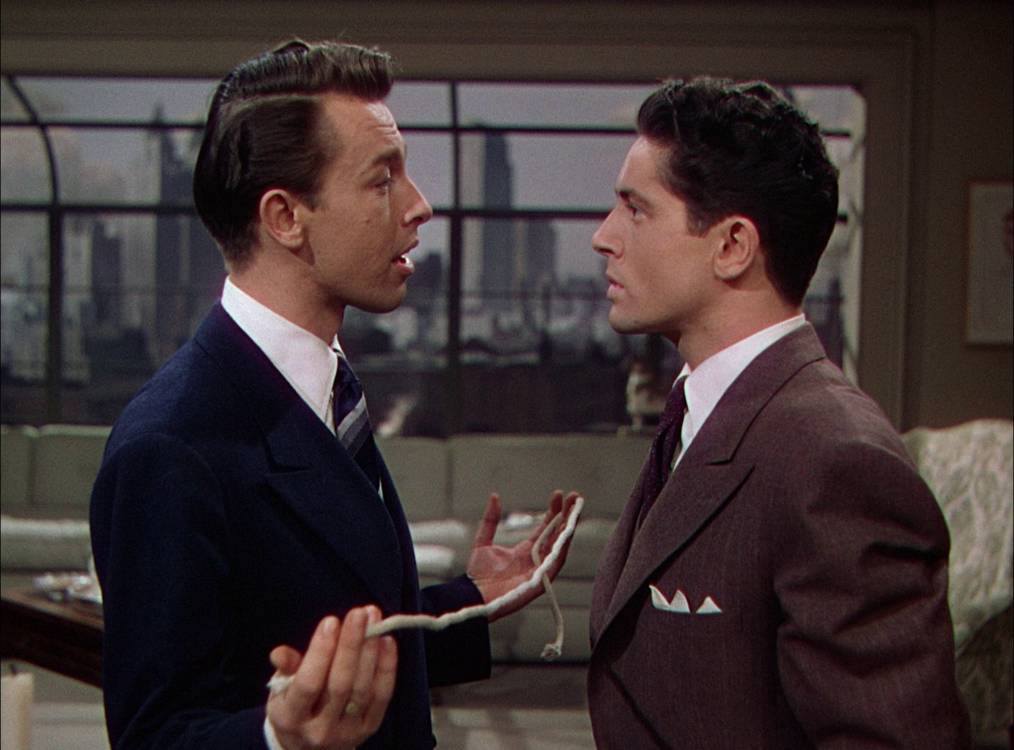BY BRIAN ALESSANDRO
—
If we can’t write with complexity and a jaundiced eye about ourselves, what good is representation? If we can’t discomfit our readers and compel contemplation, why endeavor any artistic or intellectual pursuit? These questions began to weigh on me after reading a 2017 New York Times interview with the literary luminary Edmund White about the state of homosexuality in literature and popular culture. In fact, I was so moved by White’s thoughts that I wrote a short story inspired by them called “Please,” which has just been published in PANK print issue #14.
White, author of the 1982 classic A Boy’s Own Story, the seminal biography of Jean Genet, and most recently, The Unpunished Vice: A Life of Reading, is also a good friend. In the NYT article, he contemplated a question the journalist had put to him about what he’d like to see more of in queer fiction. His answer: bad gay guys! White’s concern centered on the newfound preciousness of homosexuals, that they have come to be treated with such PC delicacy that they are rarely written about as real people. We are permitted either hero status or victimhood, in effect reducing us to saints or sufferers.
The reductive tendency smacks of apologist condescension. For too long media, and in particular, cinema—the 20th century’s most popular and influential art form—has portrayed gay people as perverse, self-loathing, or flat out evil. The infractions range from Rodrigo Santoro’s swarthy queen Xerxes in Zak Snyder’s 2006 release 300 to Peter Hanly’s promiscuous ruler Prince Edward in Mel Gibson’s 1995 Braveheart to Ted Levine’s transgender-homosexual (a conflation?) fetishistic serial killer Jame Gumb in Jonathan Demme’s 1991 The Silence of The Lambs. There were also Matt Damon’s meek, brutal Tom Ripley in Anthony Minghella’s 1999 Patricia Highsmith adaptation The Talented Mr. Ripley and Sharon Stone’s sociopathic, calculating Catherine Tramell in Paul Verhoeven’s 1992 Basic Instinct. Hitchcock was perhaps guiltiest of the malevolent misrepresentation, his Rope (1948) and Strangers on a Train (1951) both featured mincing, effeminate, cunning gay men executing sadistic agendas, while his sissy momma’s boy Norman Bates in 1960’s Psycho created dangerous fear and loathing of transgender people, confusing cross-dressing with gender identity and psychopathology. While these depictions were certainly bruising, we homo folk are now the sacred darlings of dishonest, frightened writers. I’m not entirely sure which is worse.

Farley Granger and John Dall in Hitchcock’s Rope
(1948)
I’m not suggesting we make a full return to the queer-as-subversive-revolutionary themes extolled by Genet or Pasolini (Genet’s 1943 novel Our Lady of The Flowers and Pasolini’s 1975 film Salo were unapologetic in their celebratory sordidness), but a realistic and objective treatment, absenting social context and history, could be a productive change of pace. For the sake of challenging art that doesn’t feel neutered, if nothing else. But there is something else: developing homosexual characters, and by extension, homosexuals, themselves, into flesh-and-blood humans capable of flaws and cruelty and selfishness. We homos didn’t come all this way just to demand free morality passes. We are as capable of bad behavior as any nuanced, gray-zoned hetero.
“Please” is about a nameless gay man—young (early twenties), cynical, and troubled—from Chicago who finds on Craig’s List an affluent older (fifties) gay couple working as physicians in Tucson. Upon invitation and the promise of full-time rock climbing (his great Transcendentalist passion), the young man moves into the doctors’ outsized home in the desert. The couple soon take advantage of the young man in myriad ways, including shaming him into sexual favors, restricting allowance, curtailing career opportunities, impeding social outings, and what eventually amounts to indentured servitude. The young man doesn’t mind being kept as the lifestyle they afford him satisfies his pompous entitlement. But he turns the tables on them by the end anyway through blackmail. To the manner born, the student becomes the teacher—all idioms apply.
Owing to White’s admonishment of identity politics running amuck, “Please” is an attempt to refuse absolution to the marginalized. The historically oppressed get no free passes for their transgressions, no matter how disillusioned they may be. We have earned our rightful place in the bittersweet spectacle that is our gruesome, gorgeous humanity.
—
Brian Alessandro is the co-owner and editor-in-chief of The New Engagement (TNE), an online and print literary journal that has published original work by Edmund White (his first poem in sixteen years), Pulitzer Prize and National Book Award-winning poet, Richard Howard, Murzban F Shroff, MG Stephens, Seamus Scanlon, Nadia Ibrashi, and Sue Kaufman Award-winner, Michael Carroll, whose memoir explores his marriage to White. His debut novel, The Unmentionable Mann, was published by Cairn Press in September 2015, and received favorable reviews from the Huffington Post, Examiner.com, The Leaf, and was excerpted in Bloom, the Edmund White-advised LGBTQ literary journal. It was also featured at the 2016 Tucson Festival of Books and nominated for an Independent Book Publisher Association (IBPA) award for Best New Voice. Alessandro is also the writer and director of the feature film, Afghan Hound, which co-stars Matt McGorry, and has been screened at the Left Forum and The Institute for Contemporary Psychotherapy as part of its trauma training series. Additionally, HiConcept Magazine recently nominated his short stories, Mandarin Slang and The Commands of Class and Carnage for Pushcart Prizes in 2016 and 2017, respectively. Alessandro holds a Master of Arts in clinical psychology from Columbia University, and has taught psychology, film, and literature classes at high schools in New York and at Pima Community College (affiliated with the University of Arizona) in Tucson. He is currently adapting White’s 1982 classic, A Boy’s Own Story, into a graphic novel for Top Shelf Productions with Carroll and teaching American Literature at a charter high school in the South Bronx.
![[PANK]](https://pankmagazine.com/wp-content/themes/pank/assets/images/pank-logo-large.png)


